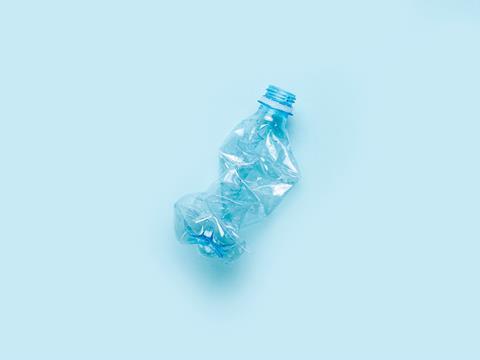
With just one week left until the plenary vote on the proposed EU Packaging and Packaging Waste Regulation (PPWR), the European natural mineral water and soft drink industries are calling on MEPs to secure a priority access right to recyclates in the proposal.
Under the current EU regimes for recycled plastic in food contact, only recycled PET (rPET) is authorised. Therefore, the drinks industry believes that securing a stable supply of rPET for beverage manufacturers is essential in order for them to meet EU-mandated recycled content targets.
They argue, however, that this has been challenging due to the downcycling of PET beverage bottles. According to a 2022 study by Eunomia and Zero Waste Europe, a substantial portion of PET beverage bottles collected for recycling (approximately 68%) is instead downcycled into other PET product applications, such as polyester textiles, automobiles or toys, taking that PET out of the recycling system.
Their call is supported by deposit and return system (DRS) operators from Sweden and Slovakia, where a priority access principle is already implemented.
Anna-Karin Fondberg, Managing Director at Sveriges Bryggerier/The Swedish Brewers, comments: “We see the true value of having priority access to recycled content enshrined within the Swedish DRS.
“This has proven to be a crucial element in securing a consistent supply of recycled content, enabling the industry to meet the EU’s recycled content targets. With this priority access, also our SMEs are in a position to make the necessary investments in recycled content to achieve their recycled content obligations and circularity ambitions.”
Patricia Fosselard, Secretary General of Natural Mineral Waters Europe, states: “The beverage industry has demonstrated the effectiveness of a closed-loop model, but a consistent supply of recycled material is a critical necessity to incentivise investment, realise the full potential of this model, and boost resource efficiency.
“We are not asking for uniquely special treatment. The principles of a priority access right should apply universally to any sector committed to investing in closed-loop recycling.’’
Nicholas Hodac, Director General of UNESDA, adds: “The European Parliament’s ENVI Committee’s support for a priority access principle was a positive step towards enabling a circular economy. Wider MEPs’ support is now needed to ensure that this legal mechanism is secured in the PPWR proposal.
“We already know that a priority access right works. It is implemented in Sweden and Slovakia, authorised by national authorities, and it has been approved under Austrian law and will be integrated into its DRS that is soon to be launched.’’
If you liked this article, you might also enjoy:
The L’Oréal approach to packaging sustainability
What steps is Apple taking to make its packaging more sustainable?
How did Brazil achieve its 100% aluminium can recycling rate – and can it be replicated in the EU?
Experts have their say on the EU’s Packaging and Packaging Waste Directive revisions














No comments yet